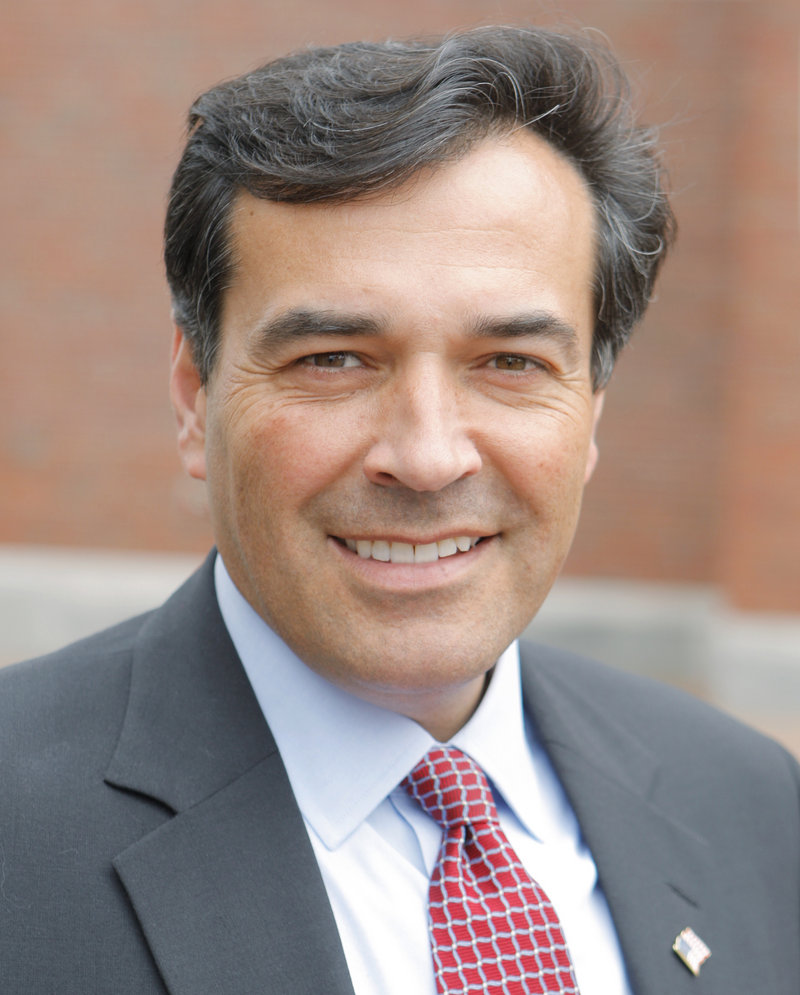AUGUSTA — Rick Bennett’s election as the new head of Maine’s Republican Party signifies the divided GOP’s effort to unify and strengthen the party ahead of the 2014 election, experts say.
Bennett was elected chairman on Saturday following the resignation of Richard Cebra, who stepped down earlier this month after just six months on the job, citing personal reasons.
Bennett, who served six terms in the Maine Legislature, is well-respected both in Maine Republican circles and outside the party, said Mark Brewer, political science professor at the University of Maine. Party leaders hope that will enable him to “do something to try to heal some cracks in the party, bring together the different factions and really get the party running well,” Brewer said.
There has been a lot of division and disharmony in Maine’s Republican Party, Bennett said on Monday. He pointed to last year’s state Republican convention, where supporters of Ron Paul for U.S. president took over and elected a majority slate supporting the former Texas congressman to the national convention, stripping Republican nominee Mitt Romney of delegates.
“I think people are ready to move beyond that and to find common ground within the party,” Bennett said. “I think people saw me as a person that is going to give all sides a hearing and make sure that we harmonize as much as possible our disparate energy into something effective.”
Bennett served as Senate president in 2002. After leaving the Senate in 2004, he became the head of GMI Ratings, a Portland-based research firm that focuses on corporate governance.
With that experience, Bennett has excellent connections across the state and knows how to raise money, said Charlie Webster, who preceded Cebra as chairman. Telephone calls to Cebra on Tuesday were not answered.
The party touted Bennett’s wide support among several Republican groups. He also was supported by the libertarian-leaning Republican Liberty Caucus.
“The party rallied around him even though large numbers of the state committee have tea party roots,” said Douglas Hodgkin, a former political science professor at Bates College and a member of the Androscoggin Republican Committee. “The tea party in Maine recognizes that we need to have a unified party in the election coming forward.”
But Libertarian and tea party-activist Andrew Ian Dodge said Bennett, “another establishment person,” is “just more of the same.” He said he was hoping Sam Canders of Bangor, a U.S. Army veteran and former Paul supporter, would be elected.
Some political analysts say that Bennett’s election may demonstrate establishment Republicans’ attempt to regain control from the tea party.
“I think Rick’s charge is to moderate the party,” said Sandy Maisel, director of the Goldfarb Center for Public Affairs at Colby College. “But his ability to do that is dependent on which people decide on their own that they’re going to run for office and whether the Republicans who turn out to vote on primary day support that,” he said.
Bennett said his role is to steer the party forward as it continues to evolve both in Maine and nationally.
“The Republican Party in Maine and certainly in other states is going through a period of redefinition,” he said. “Such periods are always creative, innovative and bring lots of new energy. But they also represent change, which is scary and risky and sometimes difficult.
“My role here in Maine is as a steward for a given period of time to help us be effective as we deal with all of that change and all of that new energy.”
Send questions/comments to the editors.


